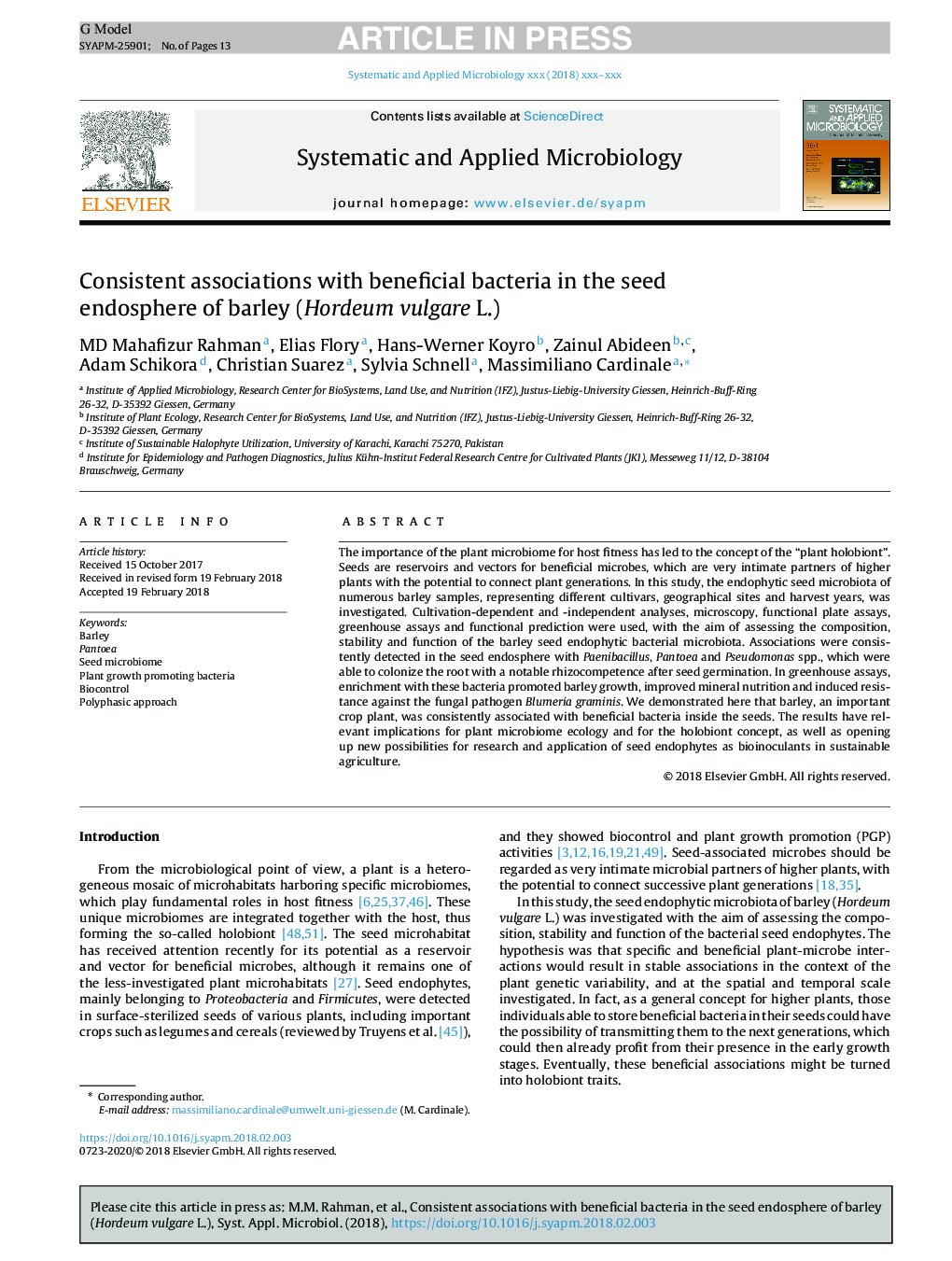| Article ID | Journal | Published Year | Pages | File Type |
|---|---|---|---|---|
| 8393349 | Systematic and Applied Microbiology | 2018 | 13 Pages |
Abstract
The importance of the plant microbiome for host fitness has led to the concept of the “plant holobiont”. Seeds are reservoirs and vectors for beneficial microbes, which are very intimate partners of higher plants with the potential to connect plant generations. In this study, the endophytic seed microbiota of numerous barley samples, representing different cultivars, geographical sites and harvest years, was investigated. Cultivation-dependent and -independent analyses, microscopy, functional plate assays, greenhouse assays and functional prediction were used, with the aim of assessing the composition, stability and function of the barley seed endophytic bacterial microbiota. Associations were consistently detected in the seed endosphere with Paenibacillus, Pantoea and Pseudomonas spp., which were able to colonize the root with a notable rhizocompetence after seed germination. In greenhouse assays, enrichment with these bacteria promoted barley growth, improved mineral nutrition and induced resistance against the fungal pathogen Blumeria graminis. We demonstrated here that barley, an important crop plant, was consistently associated with beneficial bacteria inside the seeds. The results have relevant implications for plant microbiome ecology and for the holobiont concept, as well as opening up new possibilities for research and application of seed endophytes as bioinoculants in sustainable agriculture.
Related Topics
Life Sciences
Agricultural and Biological Sciences
Ecology, Evolution, Behavior and Systematics
Authors
MD Mahafizur Rahman, Elias Flory, Hans-Werner Koyro, Zainul Abideen, Adam Schikora, Christian Suarez, Sylvia Schnell, Massimiliano Cardinale,
